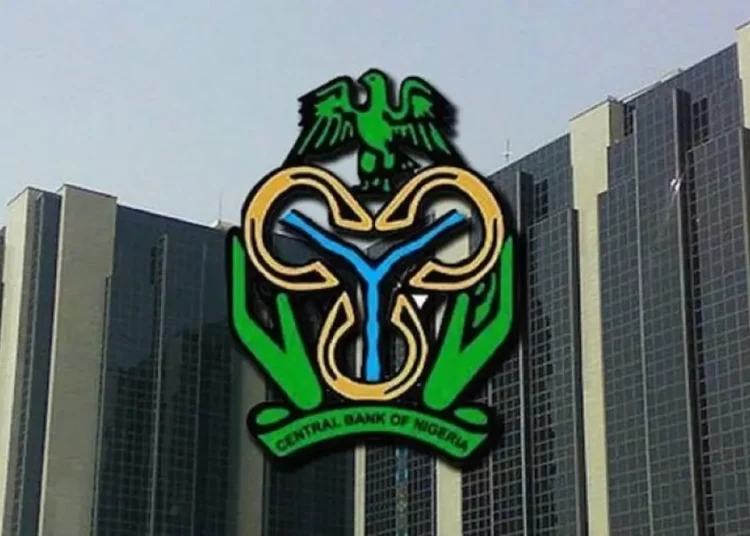Following directive of the Central Bank of Nigeria (CBN) instructing banks and payment service providers(PSPs) to accept indemnity from customers for highly secured online fund transfer in excess of N1million and above, insurance industry may soon come up with products that can address this risk, LEADERSHIP findings reveal.
Although, the virtually all the commercial banks in the country already have Professional Indemnity Cover which insures risks emanating from erroneous banking transactions initiated by the banks, it, however, did not cover risks emanating from fund transfer initiated by the customer from his mobile application or online transaction that involve transfer of funds, findings revealed.
In the past, banks have been pressured into payment of such erroneous transfer emanating from customers’ end, thereby, negatively affecting the affected banks balance sheet. But with the increase in cybercrime related fraud where bank customers are now the prime targets, the apex bank want to exonerate banks from absorbing such risks, hence, will from now, banks will now mandate customers to sign indemnity in this circumstance.
Speaking in an exclusive interview with LEADERSHIP yesterday, the managing director/CEO, Universal Insurance Plc, Mr. Ben Ujoatuonu, who disclosed that the current indemnity carried by banks does not cover the risks of transfer initiated by customers from his mobile app or online transaction, noted that, such risk could be classified under cyber-risk which is an evolving risk.
“In the developed countries. insurers are already covering such risks, however, it’s just emerging in Nigeria. Few companies such as Universal Insurance are already on the field to try to understand the dimension of these risks and craft appropriate cover that can suit such risks.
“In this instance, the industry will have to first of all, assess the risks involved and see where they can come in. Its a new regulation from the CBN in which operators must first digest the guidelines, examines the quantum of the risks and see whether its something that could be covered. Of course, its an emerging market, we will have to examine the level of risk exposure to determine the level of coverage. The development is still new, we need further details in the form of guidelines to play in that space,” he pointed out.
Earlier, the managing director/CEO, Lectern Insurance Brokers Limited, Mr. Tunde Oguntade, couldn’t understand why CBN will have to intervene in an issue that should be the responsibility of the banks.
Oguntade, who is also the Vice President of the Nigerian Council of Registered Insurance Brokers(NCRIB) said: “there is no way banks can be exonerated totally from erroneous transaction on any account because most of those transfer took place on the bank’s platform. For any transfer to be successful, it has to link the bank’s database.
So, why will you push the responsibility to customers alone?
“Moreover, banks already have Professional indemnity Cover which insured risks emanating from erroneous transactions such as the transfer in question. And after pushing the risk to customers, banks may also come to claim from their insurers which will amount to profiting from the insurance system and that is fraudulent.
“CBN still need to have a rethink on the whole issue and make banks to also share in this blame. A lot of insider connivance with fraudsters are ongoing in some banks, where funds are moved fraudulently from customers’ accounts without the knowledge and approval of accountholders. So, how will you treat this?” he queried.
CBN had earlier instructed banks and payment service providers (PSPs) to accept indemnity from customers for highly secured online funds transfer.
The bank gave the directive in a circular posted on its website on Thursday and signed by Musa Jimoh, director, payments system management department.
According to the apex bank, the directive is applicable on transfers amounting to N1 million for individual customers and N10 million for corporate customers.
The CBN, however, set a maximum limit on the transferable amount at N25 million for individual customers, and N250 million for corporate customers.
Indemnity means security or protection against financial liability. It is a contract that holds a business or company harmless for any burden, loss, or damage.
In this case, the indemnity implies that the bank is not to be held responsible for any liability that may arise from online funds transfer.
In the document titled, ‘Circular on the Review of Operations of the NIBSS Instant Payments System and other Electronic Payment Options with Similar Features’, the apex bank said, the indemnity can be paper or electronic depending on the customer’s choice.
“Banks are hereby required to comply with the following: “Accept indemnity from customers for highly secured online funds transfer above N1 million for individual and N10 million for corporate, subject to a maximum of N25 million (individual) and N250 million (corporate),” the circular reads.
“Provide customers with the option of electronic or paper indemnity based on the customer’s preference. Implement electronic indemnity with stricter controls requiring biometric verification of identity.
“Adhere to multiple-factor authentication for highly secured online funds transfer. Inform and educate customers on the use of indemnity to increase transaction limits where possible,” it pointed out.





